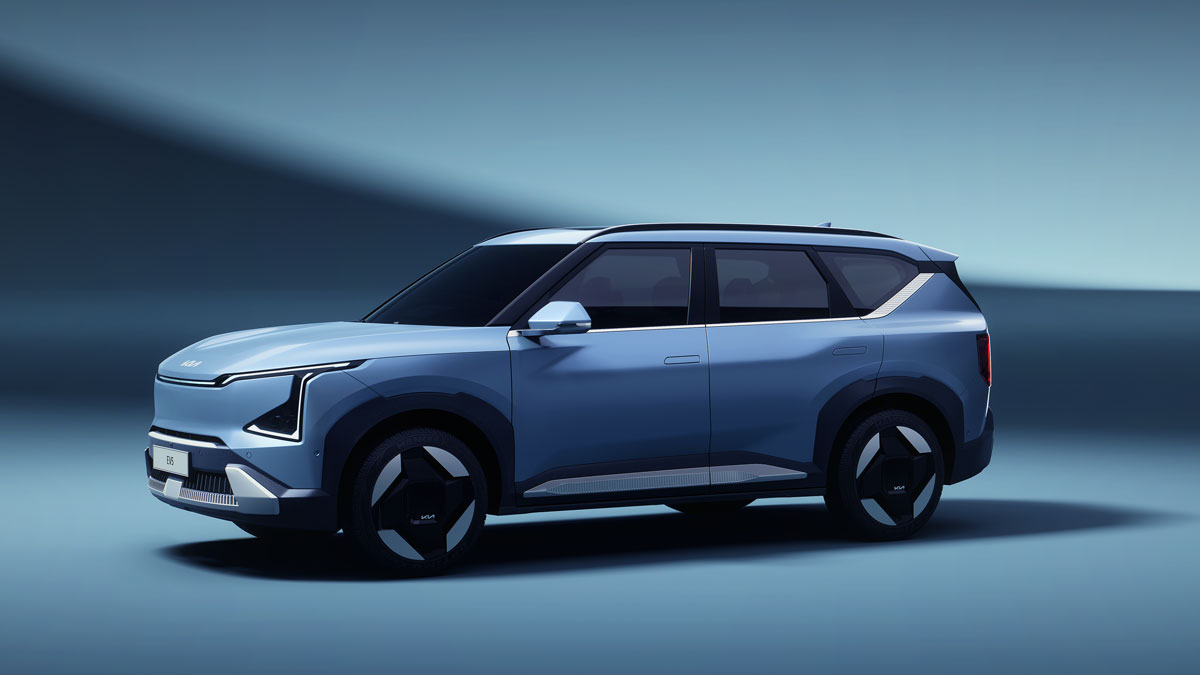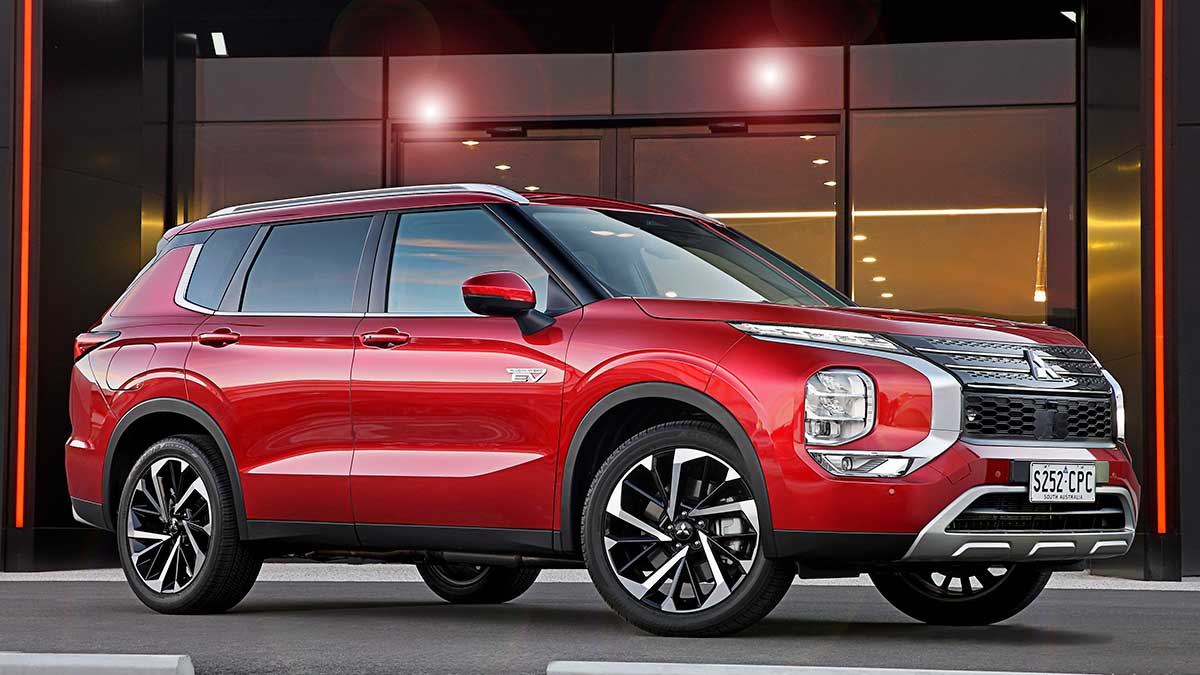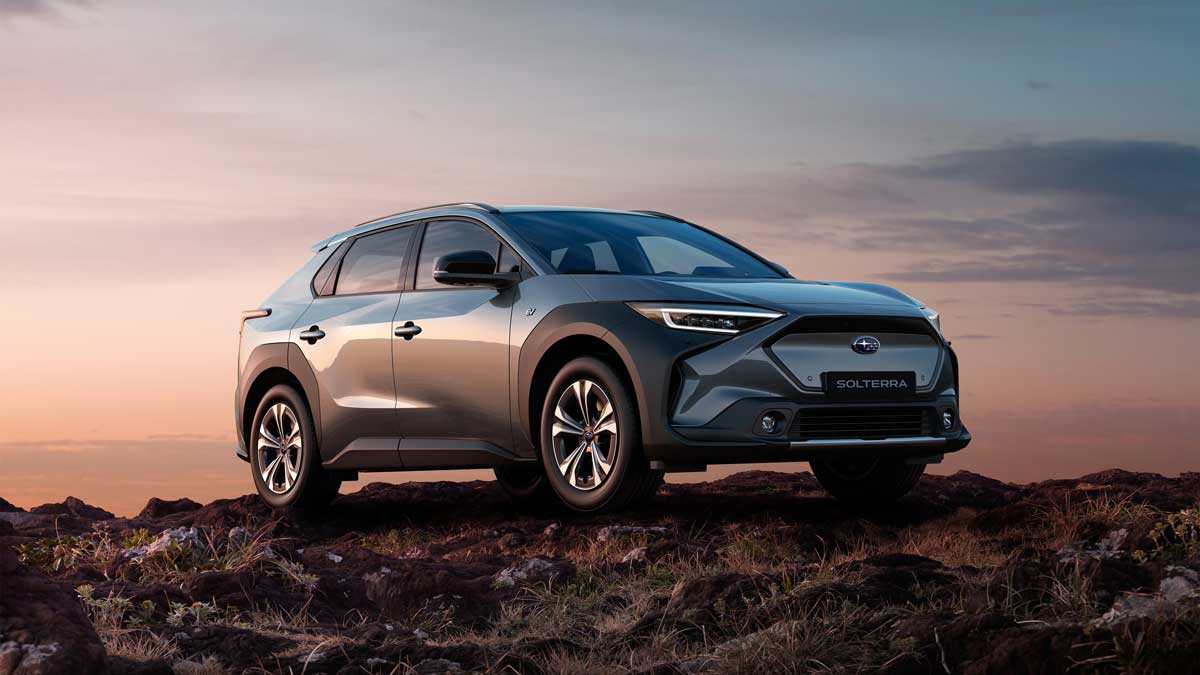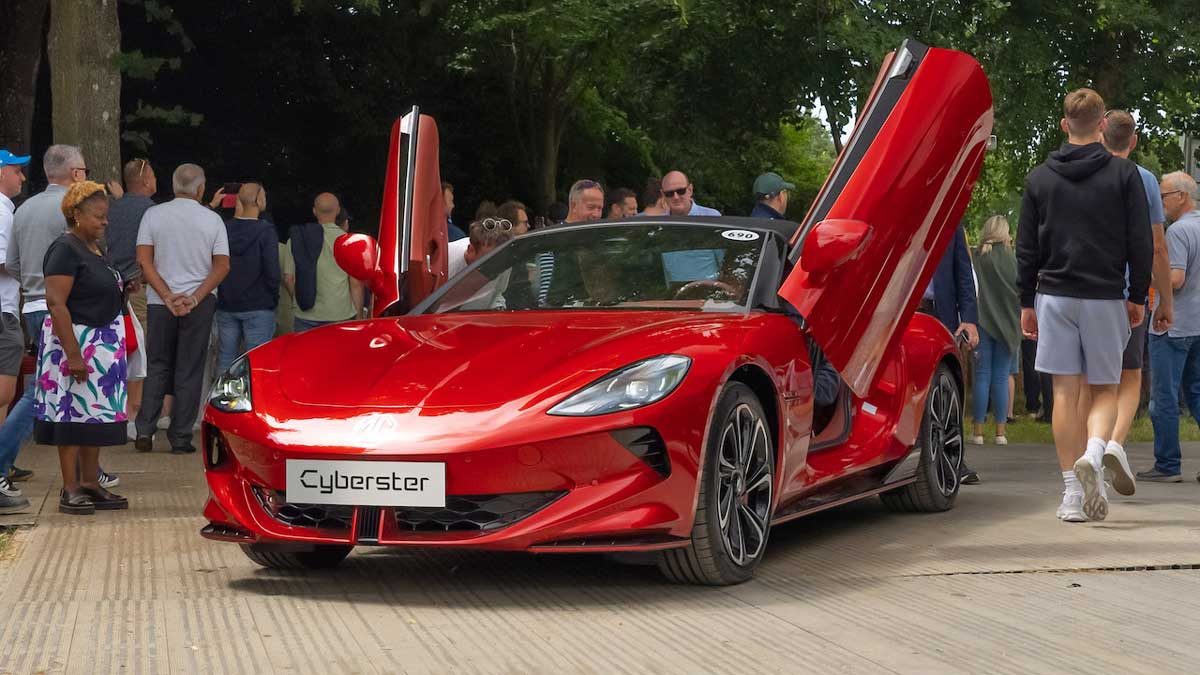So you’re looking for a new hybrid, plug-in hybrid or electric car. Here's a guide to what you need to know before testing, buying and driving away in your new set of wheels.
Electric vehicle plans of the world's top car brands

As demand for electric vehicles continues to grow globally, many of the world's major car brands are transitioning their model ranges and releasing new electric vehicles.
The automotive industry is evolving quickly around the world. Australians now benefit from greater choice than ever when it comes to electric vehicles (EVs) and government incentives that enable EVs to be purchased at a lower price.
The result is that electric vehicle sales are growing quickly. Models such as the Tesla Model Y, Tesla Model 3 and BYD Atto 3, Dolphin and Seal are among the top-selling vehicles in their respective segments. On the smaller front, MG is following the critical acclaim for its MG4 electric hatchback with the arrival of the MG Cyberster in the second half of this year.
Alongside Tesla, BYD and Volvo's sporty electric-only Polestar brand, several legacy car brands have plans to transition away from internal combustion engine (ICE) vehicles altogether in favour of an electric-only model range.
Other car brands also have big plans for EVs, such as offering alternative battery models alongside ICE models, and going electric-only in specific markets only.
Car brands transitioning to electric vehicles
- Alfa Romeo
- Audi
- Bentley
- BMW
- Fiat
- Ford
- General Motors
- Honda
- Jaguar
- Jeep
- Kia
- Land Rover
- Lexus
- Mercedes-Benz
- Mini
- Mitsubishi
- Nissan
- Peugeot
- Porsche
- Subaru
- Toyota
- Volkswagen
- Volvo
Note: Dates, timelines and manufacturer announcements subject to change.
Which car companies are going all electric and when?
Mini
Mini plans to launch its last ICE model in 2025, producing electric-only vehicles from 2030 onwards. The brand's parent company, BMW Group, is aiming for half of all Mini sales to be electric by 2027.
Mini currently produces the Mini Electric hatch, and is launching the Mini Cooper E and SE towards the end of this year. The Countryman E and SE SUV will also follow in the third quarter of 2024.
Honda
Honda has pledged to be 100 per cent battery electric or hydrogen fuel-cell electric vehicles (FCEV) by 2040.
Honda in Australia has so far focused more on hybrid models rather than EVs, with no full-electric vehicles on sale. Their earliest release to Australia will likely be in 2028.
Jaguar and Land Rover
Jaguar plans to stop global production of all petrol and diesel vehicles from 2025.
The brand launched its first all-electric SUV, the Jaguar I-PACE, in 2018.
Sister brand Land Rover will add six EVs to its line-up in the next five years – with the first coming in 2024, the electric Range Rover which will rival such models as the BMW iX and Mercedes-Benz EQS – as part of a plan to offer an electric version of each of its model lines. Versions of the next-gen Evoque, Discovery Sport and Velar will follow in 2025. The waiting list for pre-order for the electric Range Rover in Australia has been opened, however, there is no confirmed release date
Land Rover will start to phase out diesel engines in 2026, with a 2036 deadline for an all-electric vehicle range.
Fiat
Italian small car specialist Fiat has already stopped selling ICE vehicles in the United Kingdom. The brand will transition to an electric-only brand worldwide between 2025 and 2030, aiming for the cost of its new EV models to rival those of its petrol and diesel cars.
Already a sales success in Europe, the iconic Fiat 500-e EV launched in Australia mid-2023, with the performance-focused electric Abarth 500e arriving at the end of last year.
Volvo
Volvo is rapidly phasing out the sale of ICE and hybrid vehicles locally, aiming to sell electric-only vehicles in Australia by 2026, four years ahead of the brand's global ambitions.
The Chinese-owned brand has already signalled a target for 50 per cent of global sales to be fully electric by 2025. Every current Volvo model is now available in a plug-in hybrid variation (such as the S60 hybrid), making the brand the first legacy carmaker to overhaul its entire model range to hybrid or electric.
Volvo’s first full EV, the XC40 Recharge SUV, launched in 2023. The EX30 is expected to arrive in Australia in early this year with a sleek single central touch screen having ditched the digital instrument display.

The Mustang Mach-E is Ford’s first ever pure-electric model. Image: Supplied
Bentley
Ultra-luxury brand Bentley will shift from petrol to electric-only models by 2030, while all models will be offered with a plug-in hybrid option by 2026.
Of Bentley’s current models, both the Bentayga SUV and Flying Spur sedan are already available in plug-in hybrid guise, with plans for the Continental GT and GTC to join.
The brand projects five new EV models to join its model range over the next five years.
Alfa Romeo
The sporty Italian car manufacturer has announced that its first electric SUV will launch in 2024, with the whole model range going electric-only from 2027.
In Australia, the Alfa Romeo Tonale PHEV SUV launched at the end of 2023, and the Milano light SUV will debut globally in April
A new electric sedan is slated for launch in 2027, followed by a new flagship electric SUV in 2028.
Lexus
By 2030, Toyota’s luxury arm Lexus aims to only sell electric-only vehicles across the US, and globally by 2035.
The 2023 RZ SUV is Lexus’ first all-electric offering, with plans for an EV sports coupe, a supercar, SUVs, and a sedan all in the pipeline.

The Alfa Romeo Tonale PHEV SUV launched in Australia at the end of 2023. Image: Supplied
Car brands with electric vehicle plans
These car brand may not have committed to a global all-electric strategy just yet, but are investing in a larger EV range, with some new models scheduled to arrive in Australia.
Audi
Audi aims to be all-electric by 2033 - in every corner of the globe excluding China. On sale now in Australia are the Audi e-tron GT and Audi Q8 55 e-tron with the new Audi SQ8 e-tron and SQ8 Sportback e-tron models arriving in Audi dealerships in the second quarter of 2024.
The Audi Q3 sized Q4e-tron hits Aussie roads in the second half of this year and will be in the, priced from $88,300 plus on-road costs.
Mitsubishi
In partnership with Nissan and Renault, Mitsubishi will jointly develop over 30 EVs by 2030, going all electric or hybrid by 2035. Mitsubishi launched its first EV, the i-MiEV in 2010, It plans to release a new small SUV in 2025. It is unclear, however, if it will be a Mitsubishi-designed vehicle or a version of the Renault.
Currently, Mitsubishi offers the Outlander PHEV and Eclipse Cross PHEV in Australian showrooms.
Mercedes-Benz
Mercedes-Benz models will be all electric by 2030… well, kind of.
While every segment of the brand’s model range now has an electric option and will continue to do so, there is a caveat: these EVs will only be sold 'where market conditions allow.'
This means post 2030, Mercedes-Benz petrol and diesel vehicles may still be produced for auto markets that aren’t seeing as much EV demand.
Mercedes-Benz’s all-electric offerings fall under the 'EQ' range in Australia. The brand currently has seven electric passenger vehicles in its range and three plug-in hybrids. It also launched the Mercedes-Benz e-Vito van and e-Vito Tourer last year.
Peugeot
Peugeot has introduced electric versions of its entire model range and will transition to electric-only across Europe by 2030. The first electric passenger car to arrive in Australia was the e-2008 small SUV which was launched late last year and it will be joined here this year by the e-208 electric hatch, which has been on sale in Europe for four years.
Peugeot also offers its Partner van as an electric model and has five plug-in hybrid passenger cars in its local range
Globally, around 70 per cent of Peugeot models are EV or PHEV.
General Motors (GM)
GM announced plans to eliminate tailpipe emissions from all light-duty vehicles - which includes all cars, SUVs, and pick-up trucks - by 2035. GM intends to sell one million EVs a year in North America and China by 2050. They will also add 2,700 fast charging stations across the US by 2025 in a bid to challenge EV sales leader Tesla.
In Australia, GM is making it’s way back into the market, leading with the Cadillac Lyriq all-electric SUV which will be released by the end of this year. The Lyriq is set to rival the likes of luxury SUVs BMW iX, Audi Q8 e-tron and the Mercedes-Benz EQE. There will be more Cadillacs to come with no set timelines announced yet.
GM’s larger pick-up trucks popular in North America, and growing in popularity here are not included in the brand's EV commitment.
Volkswagen
Volkswagen is investing over $250 billion to make one in every five of its vehicle sales electric by 2025. The brand projects that their EV sales will surpass ICE sales towards the end of the decade.
Focusing on EVs and PHEVs, VW plans to release 10 EVs by 2026 Confirmed for Australia are the ID.4 and ID.5 mid-size all electric SUV duo which is set to be released by the middle of this year. The ID. Buzz people-mover and the ID Buzz Cargo van will be next in the line up to debut at the end of this year, brought forward from 2025. While VW offers its ID.3 small hatch overseas, there’s currently no confirmation of when it will arrive in Australia.
In terms of plug-in hybrid options, the Touareg R hybrid has been confirmed for launch this year along with the new Multivan which will be available as a plug-in hybrid.
Kia
By 2030, Kia is aiming for 52 per cent of its global sales to be electric, PHEV or hybrid.
The brand's first full electric vehicle, the acclaimed Kia EV6, hit the Australian market in 2022. Kia also has both Sorento PHEV,Niro EV and EV9 on sale locally.
Being introduced to the Australian market in 2024 is the China-sourced Kia EV5 SUV with a lower cost lithium ferrous phosphate batteries and new technology to rival the top-selling Tesla Model Y and BYD Atto 3.
Toyota
With Lexus under its corporate umbrella, most of Toyota's EV investment has so far been seen in its luxury arm. Toyota 's first EV, the Toyota Bz4X medium SUV, which is twinned with the Subaru Solterra, is scheduled for arrival in Australia by the end of the first quarter this year.
Toyota is investing heavily in new battery technology allowing for reduced charging time in low temperature environments and reduced power consumption, and expects to increase its EV production towards the end of the decade.
Ford
Ford’s European division has committed to transitioning its entire passenger vehicle range to electric-only by 2030. Overall, the brand expects 40-50 per cent of its global car sales to be fully electric by 2030.
In Australia, Ford introduced the Mustang Mach-E late last year and is set to launch the Ford Puma EV at the tail end of 2024.Further down the line in 2025 will be the PHEV version of the ever popular Ford Ranger ute.
Nissan
In 2021, Nissan revealed its strategy to produce 22 new electric or hybrid models by 2030. In Australia, Nissan offers the ageing electric Leaf hatchback, with plans to bring the Ariya electric SUV to local showrooms in the near future.
By 2026, Nissan aims for 75 per cent of its sales in Europe to be ‘electrified,’ as well as 55 per cent in the US, and 40 per cent in China.
Jeep
The popular SUV brand will be developing four new electric models by 2025.
The 2023 European Car of the Year, the Jeep Avenger, a sleek compact SUV, will be the first electric vehicle to join the Jeep line up in Australia when it launches here in the second half of the year.
By 2030, the brand aims for 50 per cent of sales in the US to be EV-only, and 100 per cent across Europe. Its plug-in hybrid version of the Jeep Grand Cherokee was launched across Australia last year.
The brand has also recently previewed the Jeep Wagoneer S, its first globally available all-electric SUV with no confirmation on timing for launch locally.
BMW
By 2030, BMW is targeting 50 per cent of its global sales to be electric, with plans for 10 million BMW EVs on the road worldwide by 2033.
The long awaited electric SUV, the iX2, will be released in Australia in March of this year. It is the fully electric companion of the second-gen X2 with much bigger dimensions and more technology. It will join BMW’s current EV line up of iX1, i5, i7, iX, i4 and iX3.
The brand also offers plug-in hybrid options for its core range including 3 Series, X3, X5 and XM.
Subaru
Subaru recently launched it’s first ever EV, the Solterra electric medium SUV in Australia and has, plans for three new electric Subarus to be launched from 2025 in the USA.
By 2028, Subaru expects to produce 400,000 EVs per year, less than half its current annual production.
Porsche
The sports car maker has plans for 80 per cent of all sales to be electric by 2030.
The brand already has the popular electric Taycan sedan and wagon in its model range. The second-generation Macan mid-size SUV, which currently represents 50 per cent of Porsche sales in Australia will be EV only when it arrives in the fourth quarter of this year. The all-electric Cayenne large SUV is expected next year.
Plug in hybrid variants of the Cayenne and Panamera are also available.
The information provided is general advice only. Before making any decisions please consider your own circumstances and the Product Disclosure Statement and Target Market Determinations. For copies, visit racv.com.au. As distributor, RACV Insurance Services Pty Ltd AFS Licence No. 230039 receives commission for each policy sold or renewed. Product(s) issued by Insurance Manufacturers of Australia Pty Ltd ABN 93 004 208 084 AFS Licence No. 227678.






